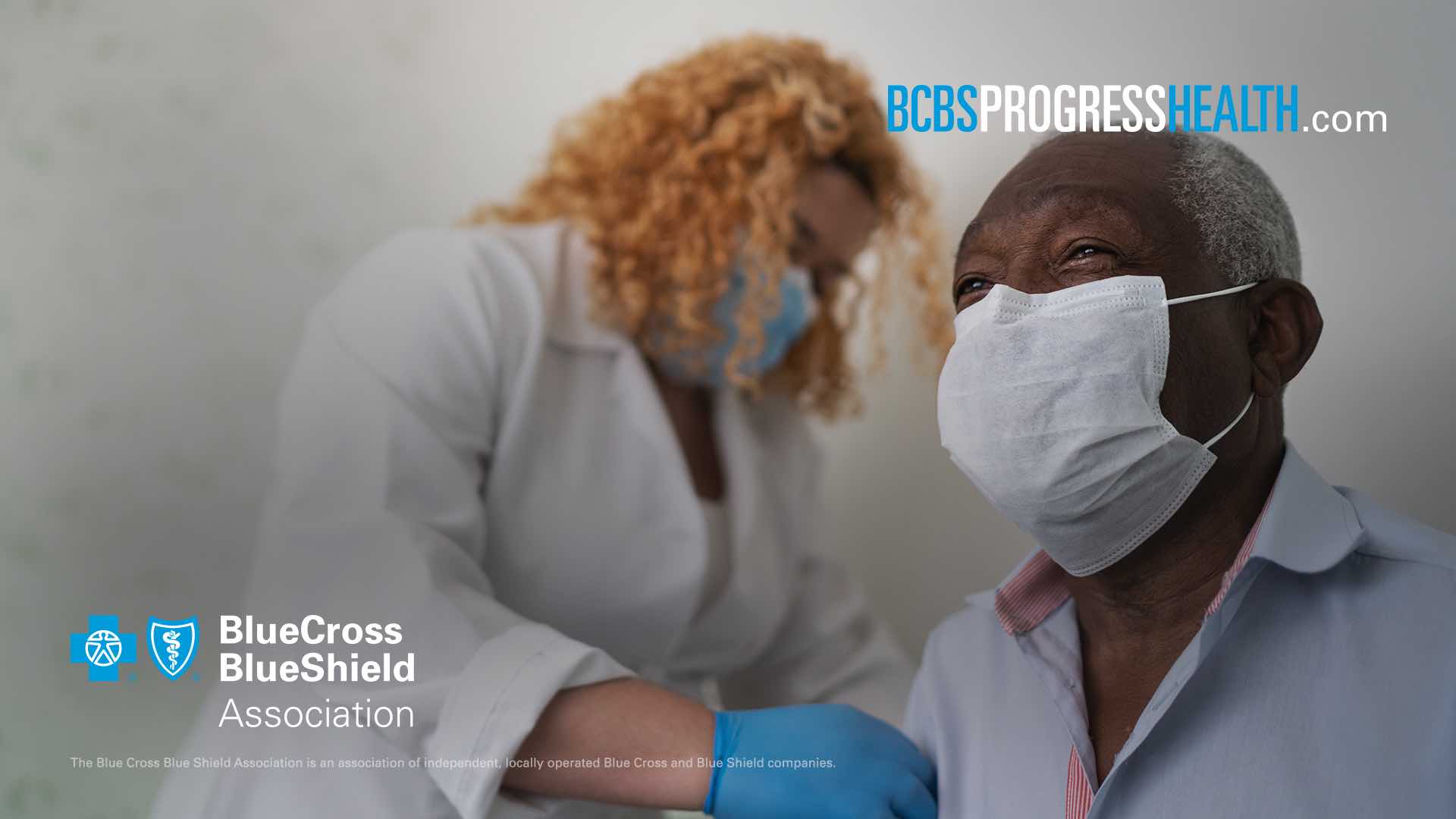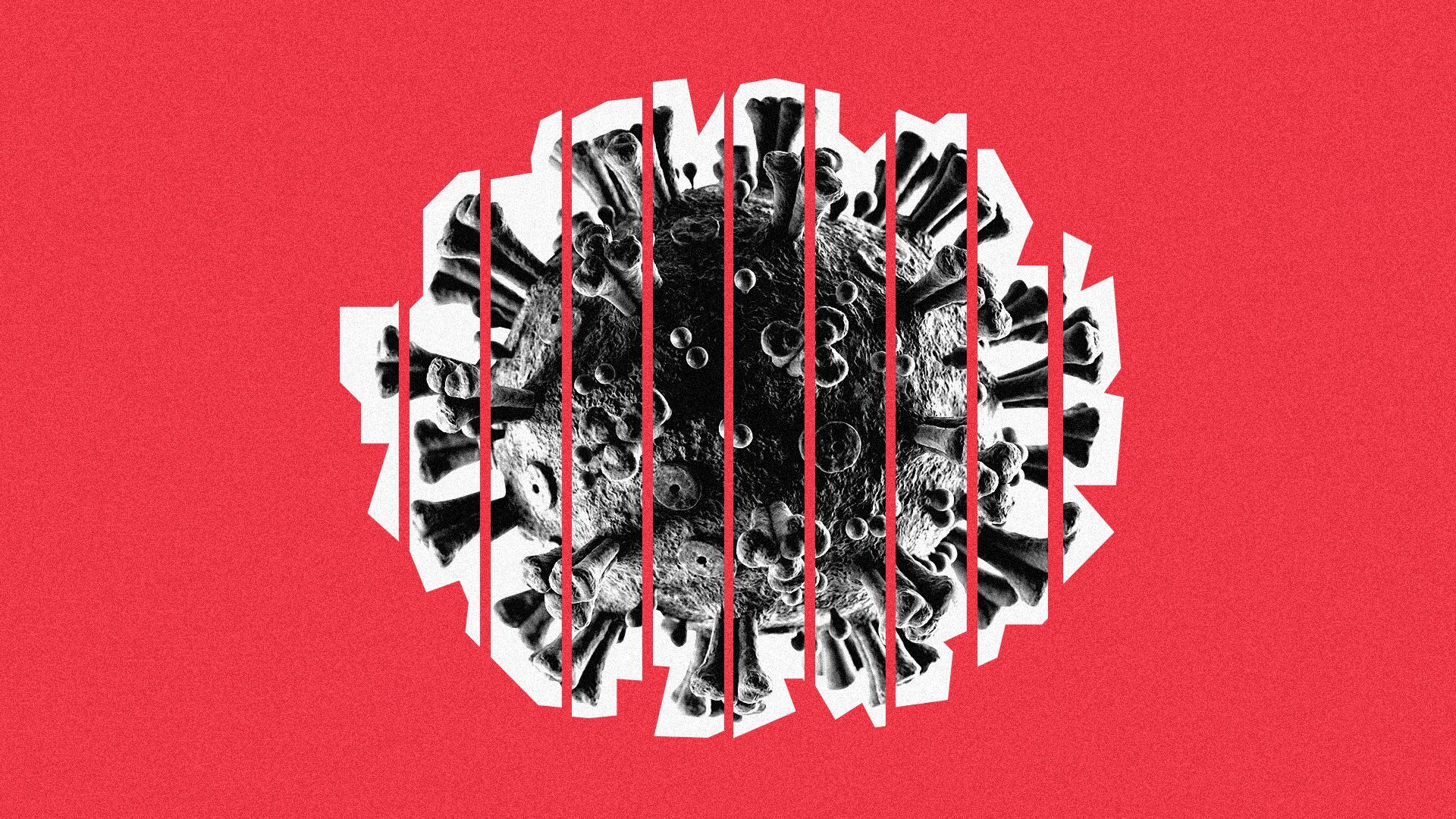| |
| |
| |
| Presented By Blue Cross Blue Shield Association |
| |
| Vitals |
| By Caitlin Owens ·Mar 25, 2021 |
| Good morning. Situational awareness: AstraZeneca said Wednesday that a primary analysis of its Phase 3 trial data confirmed its coronavirus vaccine's "safety" with a 76% efficacy rate against symptomatic COVID, Axios' Shawna Chen reports. Today's word count is 819, or a 3-minute read. |
| |
| |
| 1 big thing: Coronavirus cases rise in 19 states |
 Data: CSSE Johns Hopkins University; Map: Andrew Witherspoon/Axios New coronavirus infections rose over the past week in 19 states while holding steady nationwide, Axios' Sam Baker and Andrew Witherspoon report. The big picture: The U.S. is in a race to vaccinate as many Americans as possible before variants of COVID-19, fueled by quick reopening, can cause a new wave of rising caseloads. By the numbers: The U.S. is now averaging about 53,000 new cases per day — essentially unchanged from last week's average. Cases have been holding steady in this range for several weeks. - 19 states saw their average daily cases increase over the past week, and 14 states saw their numbers fall. The biggest improvements were in Arizona and Nevada, both of which saw new cases drop by about 45%.
- Michigan, on the other hand, took the biggest step backward, with a 50% rise in new cases.
What we're watching: The U.S. has administered an average of 2.5 million vaccine doses per day over the past week, according to Bloomberg's vaccine tracker. - Vaccinations are growing a whole lot faster than cases, and will ultimately bring about the end of this pandemic. But it will require non-vaccine interventions — like masks and social distancing — to avoid another wave of rising infections while vaccines continue to roll out.
|
    |
| |
| |
| 2. Hospitals still in "survival mode" |
| A year into the pandemic, hospitals say they're still in "survival mode," according to a new report from the Health and Human Services Department's inspector general. The big picture: Health care workers have had to deal with long hours, overwhelming patient volumes and supply shortages — all on top of a high risk of infection, and the isolation that we've all experienced, Axios' Marisa Fernandez reports. Details: The report surveyed more than 300 hospitals nationwide Feb. 22–26 on the effects of the pandemic. - Hospitals said staff were "exhausted, mentally fatigued, and sometimes experiencing possible PTSD" due to long hours, more shifts, time away from family and increased responsibilities.
|
    |
| |
| |
| 3. COVID-19's misinformation wake-up call |
 |
|
| Illustration: Annelise Capossela/Axios |
| |
| Outrage over misinformation online has been rising for years, but it was the flood of false information surrounding COVID-19 and vaccinations that finally pushed health officials, tech companies and politicians to take strong action, Axios' Kim Hart reports. Why it matters: Political misinformation can sway elections, but COVID misinformation can kill thousands of people a day. Driving the news: The CEOs of Twitter, Facebook and Google will testify today before the powerful House Energy and Commerce Committee. - The big picture: Alarm over the potential of COVID-19 misinformation to cause harm spread first from public heath officials to tech firms and then moved to legislators.
The extent of pandemic-related misinformation and disinformation. took the public health community by surprise. - At the start of the shut-downs last year — when many aspects of the virus were still unknown — some researchers were alarmed to see that people weren't dismissing bogus claims about COVID-19.
Social media networks have not been able to keep up with the tsunami of misinformation, despite their sizable efforts to remove false information and posts that violate their rules. - Tech firms in general are wary of judging the veracity of users' posts. But the significant public health harm wrought by COVID-19 misinformation has been a tipping point in pushing them to take stronger action.
For Congress members who'll grill the company CEOs on Thursday, the spread of COVID-19 misinformation is another troubling example of how out-of-control false narratives have become on social media. Go deeper. |
    |
| |
| |
| A message from Blue Cross Blue Shield Association |
| Using data to build vaccine confidence |
| |
 |
| |
| Reluctance about vaccines is higher in communities of color due to a long history of inequitable health treatment. Learn how we are using Blue Cross and Blue Shield data to identify social vulnerabilities and replace hesitancy with hope. |
| |
| |
| 4. States continue to expand vaccine eligibility |
| More than 40 states plan to meet President Biden's goal of making all adults eligible for the coronavirus vaccine by May 1, and at least 30 plan to open up eligibility before then, per NYT. What they're saying: "My thought is that we're going to see a continued decrease in transmission as we open vaccine eligibility," Cindy Prins, an epidemiologist at the University of Florida, told NYT. - "It's not just a matter of more people getting vaccinated, but the variety of ages and kinds of people who can get vaccinated will reduce that transmission," she added.
The other side: Millions of vulnerable Americans, including older people and those with underlying health conditions, remain unvaccinated. - Opening up eligibility to non-vulnerable people too fast could increase competition for shots for the vulnerable people who are still waiting in line.
Go deeper: Opening the vaccine doors too wide, too fast could threaten equity |
    |
| |
| |
| 5. Catch up quick |
 |
|
| Illustration: Aïda Amer/Axios |
| |
| Seven out of 10 people across the U.S. ages 65 and older — totaling 38 million — have received at least one dose of a COVID-19 vaccine, according to the Centers for Disease Control and Prevention. Nearly 2,900 unaccompanied minors tested positive for COVID-19 on arrival at U.S. government shelters over the past year — including around 300 currently in the system — a Department of Health and Human Services official tells Axios' Stef Kight. New York Gov. Andrew Cuomo (D) allegedly gave family members including CNN anchor Chris Cuomo "special access" to state-administered COVID-19 tests in early 2020, the Washington Post first reported Wednesday. Moncef Slaoui, the former chief science adviser to Operation Warp Speed under the Trump administration, was fired as chairman of the board of directors of Galvani Bioelectronics after allegations of sexual harassment stemming from his time at GlaxoSmithKline. Germany will no longer implement a stricter shutdown over the Easter holiday period on April 1–5, Chancellor Angela Merkel announced on Wednesday, calling the plan a mistake and apologizing to citizens, reports AP. |
    |
| |
| |
| A message from Blue Cross Blue Shield Association |
| Improving coverage, cost and equity |
| |
 |
| |
| Expanding and enhancing the Affordable Care Act will help cover everyone and make healthcare more equitable. To achieve universal coverage, we must: - Close the low-income coverage gap.
- Adjust tax credits.
- Boost enrollment and outreach.
See how. |
| |
| Don't forget to submit your dogs! This newsletter is written in Smart Brevity®. Learn how your team can communicate in the same smart, clear style with Axios HQ. |







No comments:
Post a Comment